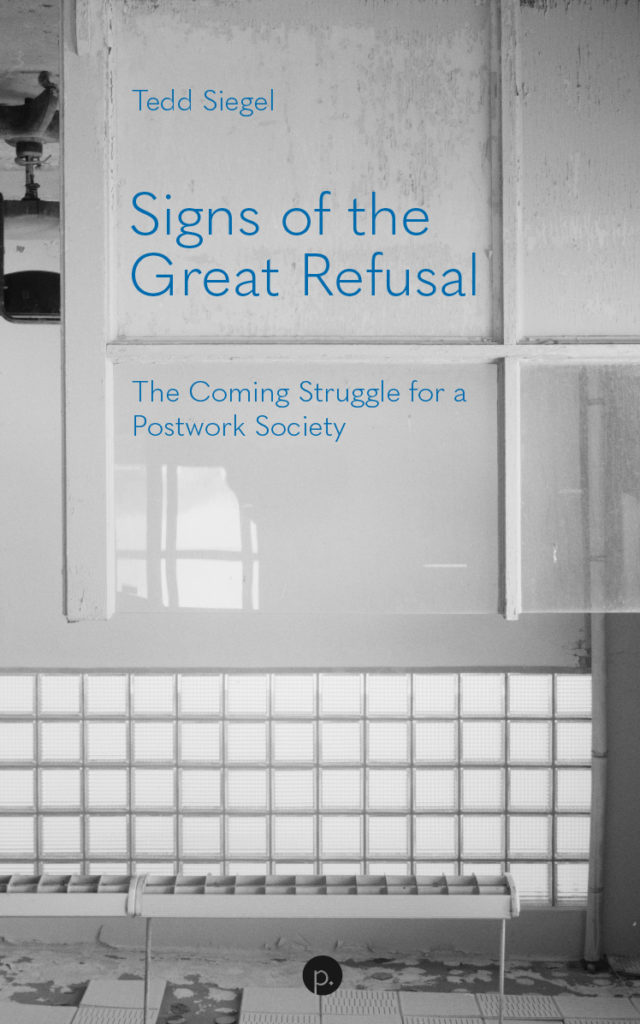In recent years, developed countries have seen the rise of discussions concerning “the problem with work today.” Since this literature tends to reflect the frustrations of the professional–managerial class (as well as other workers in globalized services industries in the digital age), it is often at a significant distance from the concerns of the organized labor movement and the traditional Left. Much of this literature presents an unacceptable either/or: workers are encouraged either to “lean in,” and become better “human capital,” or else to develop forms of palliative care for these same neoliberal selves by means of personal projects of self-optimization, recovery, and wellness.
In Signs of the Great Refusal, Tedd Siegel challenges the assumptions supporting these highly constrained possibilities, asking instead what it might take to deprivatize and repoliticize work itself under contemporary conditions, in order to make a broad-based politics of refusal potentially viable. Where postwork, antiwork, and degrowth discussions taking place today often describe and promote various “postwork imaginaries” in which the decommodification of labor is only implied, Signs of the Great Refusal is concerned specifically with the “postwork political imaginary.” Taking up a question formulated by Peter Fleming, Siegel asks, “Can the impossibility at the heart of contemporary capitalism be politically activated to oppose and escape work-as-we-know-it?”


 Tedd Siegel is a writer living on the central coast of California. He lives with his husband Matt, and spends more time with dogs and goats than with people. Tedd is the co-founder and co-editor of
Tedd Siegel is a writer living on the central coast of California. He lives with his husband Matt, and spends more time with dogs and goats than with people. Tedd is the co-founder and co-editor of